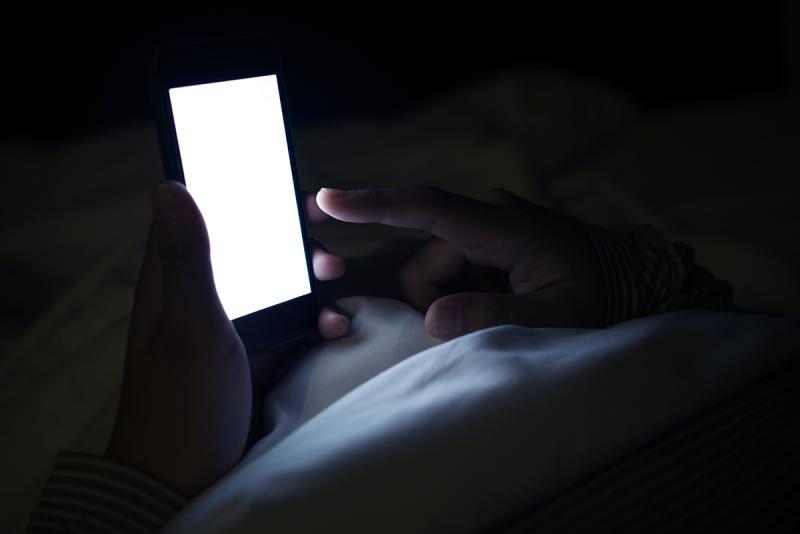DU Professor Shares Pros and Cons of ‘Unplugging’ from Social Media

We’ve all been there: You look up from your phone screen and realize that your eyes are red, puffy and dry; your hand is cramping; your brain is fried from endless scrolling. You’re not sure how much time has passed, but you know one thing: You’ve just spent way too much time on social media.
If this sounds familiar, you may want to mark your calendar for National Day of Unplugging on March 1. Ahead of this event, the DU Newsroom caught up with assistant professor of strategic communication David Coppini, who says there are benefits and drawbacks to withdrawing from the digital world.
It’s no secret that we’re all obsessed with social and digital media. How did we get here?
I feel that, to some extent, our lives are dependent on social media. So, if we think about—going beyond work and homework—if you think about our social relationships, for example, a lot of our interactions are developed through social media. And it's very difficult for someone to have a good social life, I will say, without having social media. If you're not on social media, you have a fear of missing out.
Even if we're not thinking about Facebook or Instagram, if you're a professional, you need to be on LinkedIn right now, right? So that's also a form of social media. And if you're not on LinkedIn, you're missing out on opportunities, you're missing out on networking.
There is another element, which is that social media can be a great source of entertainment and distraction. We couldn't avoid TV 20 years ago; right now, a lot of people don't even have a TV. We are on social media because it's a main source of entertainment.
It's not just about social media—what about unplugging from the news?
There is also this trend where some people are unplugging from the news, specifically, and that has to do with a few things. One factor that influences that is the level of negativity that is perceived in news media. A lot of news content is very negative, it’s very depressing, and so people don't want to consume it.
And I think there's also a component of media trust. People tend to distrust news media—in particular, mainstream news. So, there is a trend of declining trust in news organizations. And because of that, people don't trust the news. They might still get it from a TikTok account or something like that, but there is definitely this trend in some populations about unplugging from the news.
Obviously, that’s problematic, right? Because you're not informed. You're not up to date with what's going on. And then, when there is an election and you have to participate, you don't have the enough information to make an informed decision.
What are some benefits to unplugging?
There is research that shows that some people see it as a source of distraction, the constant social media use, and they're looking for more meaningful connection. Being able to have more free time, having more meaningful connections, being able to interact with people face to face, are all benefits. We also know that social media use, especially among young people and teenagers, can lead to high rates of depression and lower self-esteem. Taking a little bit of time off social media can definitely help in those areas as well.
What are some of the biggest challenges we face when it comes to taking a break from digital media?
Right now, the offline and online worlds are very much integrated with each other. In some cases, the relationships that we have on social media and the way that we keep in touch with people on social media are as important, I think, as the ones that we have offline.
I'll give you an example. I am an immigrant to the U.S., but I have a lot of friends in Italy, I have a lot of friends around the world. And having social media gives me the possibility of keeping in touch with them, see what they're doing, get a glimpse into their lives, even if I’m not home. So, in some cases, it does allow for more connectivity and helps people, I think, in very meaningful ways.
What are some of the best ways to unplug?
I think we can do small things. I was reading something from Penn State, a report on things that we can do from unplugging from social media. And they were saying, for example, you can turn off the notifications on your phone. So that's a way that it can be a little bit less addictive. That's an easy way to consume a little bit less or spend a little bit less time on social media.
A lot of us don't know how much time we spend on social media or on our screens. Something that I definitely have tried to do is to do activities where you don't bring your phone. I know it's difficult, because we want to check our email all the time or our notifications—but you can disappear for a couple of hours going on a walk or a hike, and you don't bring your phone, or you do a workout, and you just don't bring it.



